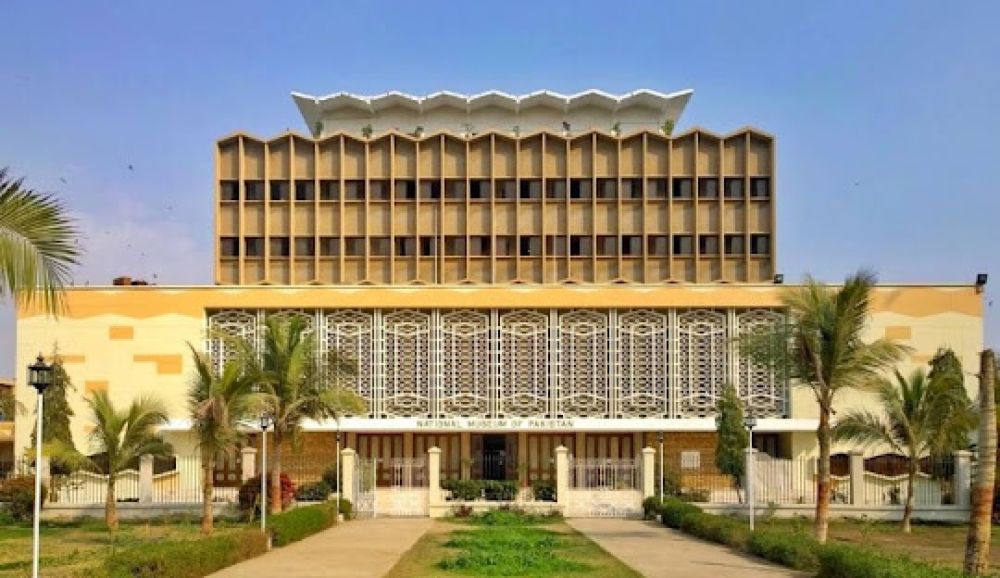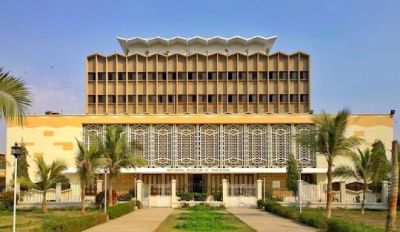

Embark on a journey through time with a Guided Historical Tour at the National Museum of Pakistan in Karachi. This extensive tour takes visitors through the rich tapestry of Pakistan's past, exploring the nation's diverse history, culture, and art. From the ancient civilizations of the Indus Valley to the modern era, the museum's exhibits include rare artifacts, manuscripts, pottery, and more. A knowledgeable guide will provide in-depth commentary on the significance of each exhibit, ensuring an educational and enriching experience. The tour is suitable for history enthusiasts, tourists, and families looking to gain a deeper understanding of Pakistan's heritage.
The National Museum of Pakistan proudly offers a Cultural Heritage Workshop designed to teach participants about the country's rich traditions and cultures. This workshop is particularly engaging, inviting guests to get hands-on experience with traditional crafts, such as pottery making and textile weaving. Taught by artisans and experts, this immersive activity not only educates but also allows for a tangible connection with the country's history. The workshop includes materials and you get to take your own creation home! This is an ideal activity for families, school trips, and visitors keen to learn about Pakistan's diverse cultural landscape.
The Educational Outreach Program at the National Museum of Pakistan aims to bring history to life for young learners. This activity is tailored towards school groups and focuses on engaging students with interactive presentations and curated tours. Specialists guide students through different time periods, help them understand historical contexts, and answer their thought-provoking questions. The program is crafted to complement the students' curriculum and make learning about Pakistan's history a fascinating venture. The museum's collections serve as a great educational tool to foster curiosity and respect for the country's heritage among the younger generation.
Avid readers and history buffs will not want to miss the Ancient Manuscripts Exhibition held periodically at the National Museum of Pakistan. The exhibition showcases a collection of priceless manuscripts, some of which are centuries old and offer insights into the rich literary traditions of South Asia. These texts include religious scriptures, philosophical treatises, and poetic anthologies, which are not only linguistically valuable but also adorned with exquisite calligraphy and illumination. Visitors can take a guided tour to understand the context and importance of these works which have contributed to the intellectual and cultural development of Pakistan.
The Independence Movement Gallery Visit is a must-do activity at the National Museum of Pakistan. This gallery offers an in-depth look at the pivotal events leading up to the creation of Pakistan in 1947. Visitors will learn about the influential figures, political movements, and public sentiments that shaped the nation's drive for sovereignty. The gallery is replete with photographs, documents, and personal artifacts that flesh out the story of Pakistan's quest for independence. The emotionally evocative exhibition provides a solemn yet uplifting experience that honors the legacy of those who fought for the country's freedom.
Experience the vibrant performing arts of Pakistan with the Traditional Music and Dance Performance at the National Museum. This activity offers a mesmerizing display of local talent as musicians and dancers take the stage to deliver performances representative of the country's various regions. Guests will be treated to a spectacle of colorful costumes, soulful melodies, and rhythmic dance moves, from the Sufi music of Sindh to the lively Attan dance of the Pashtun. Ideal for those looking to immerse themselves in Pakistan's cultural vibrancy, this performance is an auditory and visual delight.
The Archaeological Treasures Tour at the National Museum features a collection of artifacts unearthed from some of the most significant archaeological sites across Pakistan, such as Mohenjo-Daro and Harappa. Visitors are guided through the mysteries of the ancient Indus Valley Civilization, exploring its social structure, trade networks, and technological advancements. The tour often includes discussions about the conservation efforts that protect these national treasures and the role these sites play in understanding the distant past. This tour is perfect for anyone interested in archaeology and the beginnings of urban societies.
The Islamic Art and Calligraphy Session at the National Museum of Pakistan is a wonderful opportunity for guests to dive into the world of Islamic aesthetics. The session includes a gallery tour showcasing Islamic art pieces, such as intricate ceramics, ornate textiles, and stunning metalwork. Following the tour, participants will have the opportunity to learn the art of calligraphy from expert artists, practicing the alphabets and creating their own piece to take home. This combination of theory and practice provides a unique take on the spiritual and cultural facets of Islamic art.
The Photography Walk within the National Museum of Pakistan allows amateur and professional photographers alike to capture the timeless beauty of the museum's exhibits. Participants can take their cameras through the halls, framing the rich history of Pakistan through their lenses. The walk encourages photography enthusiasts to find unique perspectives and compositions while learning about the exhibits from a photographic standpoint. Special permission for tripod usage and other equipment can be arranged, providing the perfect environment for capturing stunning images of Pakistan's national heritage.
For those who are new to the National Museum of Pakistan or looking for a comprehensive overview, the Museum Highlights Tour is an excellent choice. This tour is designed to guide visitors through the most noteworthy exhibits, including artifacts from different eras of Pakistan's history, such as the Gandhara sculptures, the Islamic art section, and the ethnological displays. A museum expert leads the way, providing fascinating narratives and answering questions to ensure visitors leave with a broad understanding of the country's rich and diverse history.
